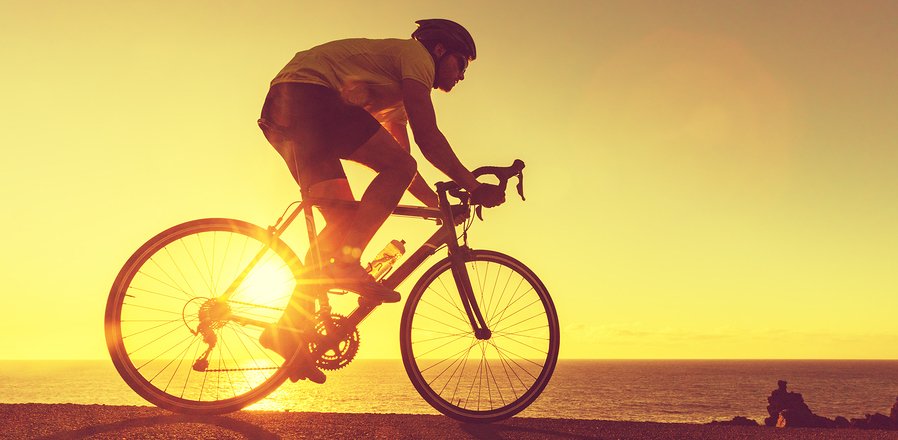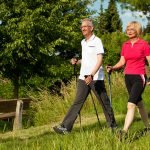There are all kinds of disagreements about the topic of working out. People debate which types of exercise are most beneficial, the merits of duration versus intensity, and what time of day is best. Then, of course, there is also the discussion regarding whether it’s better to eat before or after your physical activity. But new research seems to have an answer to that last question, at least if you are a morning exerciser.
The study, which took place at the University of Bath in the United Kingdom, found that eating a meal before working out early in the day helps the body burn a greater amount of carbohydrates while exercising as well as increasing the efficiency of digestion afterward.1 Edinburgh, Robert M.; et al. “Pre-Exercise Breakfast Ingestion versus Extended Overnight Fasting Increases Postprandial Glucose Flux after Exercise in Healthy Men.” American Journal of Physiology: Endocrinology and Metabolism. 14 August 2018. Accessed 26 August 2018. http://www.physiology.org/doi/10.1152/ajpendo.00163.2018. These results were based on an investigation that included 12 men, all in good overall health.
The subjects all spent an hour cycling in the morning. One group was randomly assigned to eat breakfast two hours before the exercise session, consuming porridge with milk. The remainder of the participants ate their breakfast after they finished cycling. During and after the workout, the researchers used oral glucose tolerance testing, isotope tracing, and muscle biopsies to measure blood glucose levels and muscle glycogen levels.
An analysis of the testing uncovered differences between those who ate before exercising versus those who ate after. Those who ate prior to their workout burned carbohydrates at a much higher rate during their workout than those who ate afterward. What’s more, the carbohydrates being burned were not only from the breakfast just consumed, but also from the stores of carbohydrates, or glycogen, that are in the muscles. That’s important because glycogen should ideally be your main energy source, and burning it can help you lose weight.
In addition, blood sugar levels were more quickly regulated after a post-exercise meal in those who ate prior to the cycling, likely due to the use of muscle glycogen. And the pre-exercise eaters had more efficient digestion and a higher rate of metabolism of the food they consumed after their physical activity, too. In other words, it appears that choosing to eat prior to physical activity helps rev our engines and contributes to better performance of both digestion and metabolism for hours afterward.
Unfortunately, the study’s design has a few flaws. One major problem is the extremely small number of volunteers included. We can’t be certain that the findings would apply to a larger, more diverse group of people. Another issue is the limited nature of the investigation. We gained information on what occurs after one session of exercise, one time, at one specific time of day. However, a long-term look at how our bodies react under the same conditions with more variables would provide considerably more information.
Yet, despite these shortcomings, the research has value because it offers a glimpse into how our bodies can function more optimally simply based on when we provide them with fuel. This also builds on earlier research, such as a 2012 study at Loughborough University in the United Kingdom that showed eating before exercise can diminish appetite more than does working out on an empty stomach.2 Deighton, K.; et al. “Appetite, energy intake, and resting metabolic responses to 60-minute treadmill running performed in a fasted versus a postprandial state.” Appetite. June 2012. Accessed 27 August 2018. http://www.ncbi.nlm.nih.gov/pubmed/22366285.
Ultimately, the most important factor is making the commitment to exercise every day. If you can’t find the time in the morning, that’s fine. An afternoon or evening workout is just as good if that’s what works for you. We can’t say for sure whether you’ll receive the same benefit of carbohydrate burning and increased metabolism if you eat prior to your physical activity later in the day, but there’s also no reason to think it wouldn’t have a similar effect. Just make sure the food you are choosing is nutritious and that you eat it two hours before you plan to start exercising so your body can digest it ahead of time.
References
| ↑1 | Edinburgh, Robert M.; et al. “Pre-Exercise Breakfast Ingestion versus Extended Overnight Fasting Increases Postprandial Glucose Flux after Exercise in Healthy Men.” American Journal of Physiology: Endocrinology and Metabolism. 14 August 2018. Accessed 26 August 2018. http://www.physiology.org/doi/10.1152/ajpendo.00163.2018. |
|---|---|
| ↑2 | Deighton, K.; et al. “Appetite, energy intake, and resting metabolic responses to 60-minute treadmill running performed in a fasted versus a postprandial state.” Appetite. June 2012. Accessed 27 August 2018. http://www.ncbi.nlm.nih.gov/pubmed/22366285. |











I have been doing body
I have been doing body building with weights for 61 years in a row(I’m 71 now) My workouts are between 4 to 6 hours long. I do high reps with short rests with light weights. I do best with a fruit breakfast raw, either a few bananas and maybe a bowl of seedless grapes, about 1 to 2 hours before the workout. Not only do I not get hungry during my workout, but my appetite doesn’t appear for two to three hours after my workout is over.
I have been a performance consultant with the NFL for the last 15 years, because they know if I recommended it, I do it.